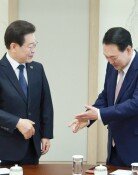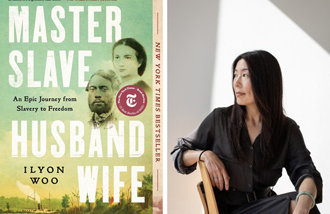Japanese textbook controversy (3)
Behind the new history textbooks for junior high school authored by the Society for History Textbook Reform is Japanese society.
Some analysts blame it for the current economic slowdown and political confusion in Japan. University of Tokyo Professor Yoichi Komori said a loss of confidence in politics and economy gave rise to these textbooks as Japanese saw fit to emphasize the self-centered superiority of Japan and in so doing make up for the lost confidence by glorifying the past. He pointed out the absence of any vision for the future in the original version of the ``people`s history`` authored by the society.
Another professor at Seikei University, Takeshi Kato, said the Japanese have lately been depressed by their troubled economy because their sense of being a big power was based on a big economy and a chauvinistic perception of history helped relieve depression.
The more basic cause of the current development is to be found in the presence of some Japanese who wish to focus on ``a powerful Japan`` that existed prior to World War II.
The main political force behind the trend is the ruling Liberal Democratic Party. A report prepared by its panel on reviewing history coincided with the position of the society. The party committee includes Prime Minister Yoshiro Mori and five other cabinet members.
Among other supporters of the society are the league of Diet members seeking a ``bright Japan,`` the fraternity of young legislators for the future of Japan and history education and leagues of councilmen for textbooks in many cities and prefectures. They insist on defying the negative reactions of Korea and China as ``intervention in the internal affairs of Japan,`` calling for a strong response by the Tokyo government.
The opposition parties in Japan are not in a position to check the Liberal Democrats. The people have little faith in the political parties. The ruling party has been in power since 1955 with an interruption of just a few years. The Mori government stayed on despite its low approval rating of 9 percent by virtue of the peculiarly sick character of Japanese politics based on a shaky balance among various factions within the majority party.
A mistaken awareness of history is used to come to terms with the negative legacy of World War II. An argument in favor of bringing about a ``common state`` free from the postwar legacy of Japan is gaining force. Voices are rising to deny the ``shameful acts`` of Japan in the past. This atmosphere inspired denunciation by the society of ``masochistic interpretation of history`` adopted in existing history textbooks.
They committed the grave mistake of forgetting their old role of offender. Nobel literature laureate Kenzaburo Oe termed the textbook authored by the society a product of a reclusive mentality.
Japanese intellectuals claim not many Japanese share the same line of rightist thinking advocated by the society. But a majority of Japanese stops short of openly criticizing and arguing against right-wing forces.
Internationalization and information technology are the buzzwords in Japan these days. In actuality, the right-leaning forces seek to revert to the bad old years and create a strange society against the dictates of internationalization and information society.
Related Articles
- How to address the textbook controversy?
- Korea expresses regret over textbook 'distortions'
- Japanese textbook controversy (2)
- South, North Korean lawmakers to oppose Japanese textbook distortion
- Statement by MOFAT spokesman on the outcome of the Japanese government`s screening of history textbooks
- Seoul to demand new revision of textbooks
- Japanese textbook controversy (1)
- Overview of Japanese history textbook content
- Controversial Japanese history textbook approved
- [Editorial] Japan has no claim to world leadership
Shim Kyu-Sun ksshim@donga.com







